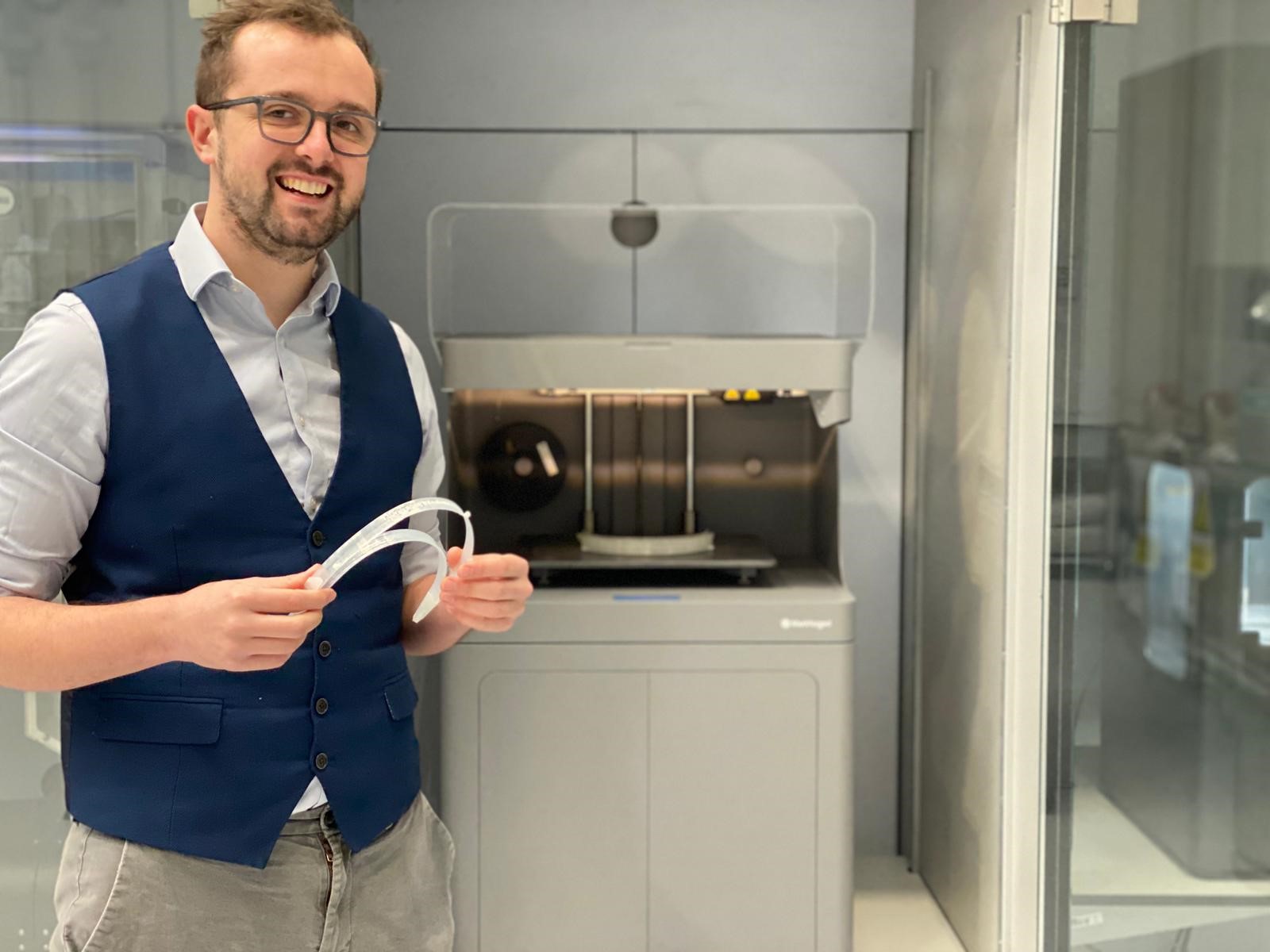The University of Hull has started production of urgently-needed faceguards for the NHS and a local hospice to prevent the spread of COVID-19.
As the nation comes together to provide support for the NHS, a team of engineers and technicians are working at the University’s Faculty of Science and Engineering and Aura Innovation Centre to increase supplies of this vital item of personal protective equipment (PPE) for healthcare professionals working on the frontline in our region.
The University aims to produce more than 400 faceguards in a pilot project – using 3D printing technology. 3D printing enables a three-dimensional object to be produced from a digital design.
Nathan Brown, senior lecturer in the department of Engineering and lead on this project, said: “Across the University, we are using our research, expertise and resources in a diverse range of ways to help with the nation’s effort to fight the COVID-19 pandemic.
“The production of these faceguards is just one of the ways we can help boost supplies of essential equipment. Initially, we will respond to the requests from the NHS and a Grimsby hospice and hope to be able to print between 100-200 a day. Once we have fulfilled these requests we hope that we will be able to support other healthcare organisations in our region.
“Over the past week, a small team of engineers including myself, Dr Louise France (Lecturer in Medical Engineering) and Brian Houston (Lecturer in Mechanical Engineering) have been able to develop a design that is optimised for our 3D printers. Feedback from NHS consultants highlighted that some of the existing designs can become uncomfortable after a while and are not suited to all head sizes. We have now enhanced the design so that it flexes to fit the face of the individual user more comfortably.”
The design will also be shared with a consortium of organisations in Manchester to allow them to produce faceguards for the NHS and other healthcare providers in their region.
“We are in the process of adapting the Faculty of Science and Engineering’s FabLab facilities – with more than twenty 3D printers, normally used by our engineering students to digitally manufacture models and prototypes. The lab will become an important resource to provide a quick response in these difficult times.”
The University is committed to providing expertise and resources to help in the UK’s fight against the pandemic. While student nurses and medics prepare to join the frontline of the NHS, other University departments such as Biomedical Sciences have already delivered sample processing technology to Castle Hill Hospital to help identify the virus. Starting next week, the University will also be providing online training to former NHS healthcare professionals who will be re-joining the workforce at the peak of the pandemic.
Dr Ellis Marshall, technical manager at the Aura Innovation Centre, said: “The 3D printing process is relatively simple. In theory, if people have a 3D printer available they can join the national efforts of the maker community across the UK. It is possible for them to set their printer up to print the design while they go about their daily lives.”
The University of Hull’s new Aura Innovation Centre supports businesses of all sizes, helping them to accelerate low-carbon projects, deliver green innovation and benefit from clean business growth. It’s official launch is expected to mark a major milestone in the University’s biggest commitment to tackling climate change.
The 3D printers in operation at the Aura Innovation Centre were kindly funded by the Regional Growth Fund/Green Port Growth Programme.
For more information about this project – please get in touch via @aurainnovation or email aic.aura@hull.ac.uk




